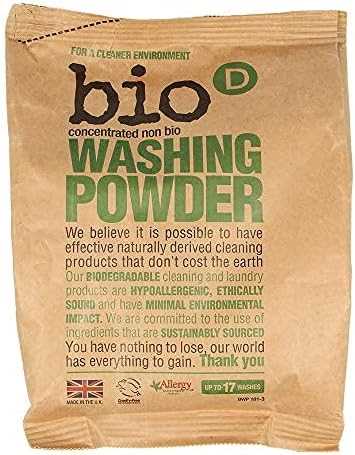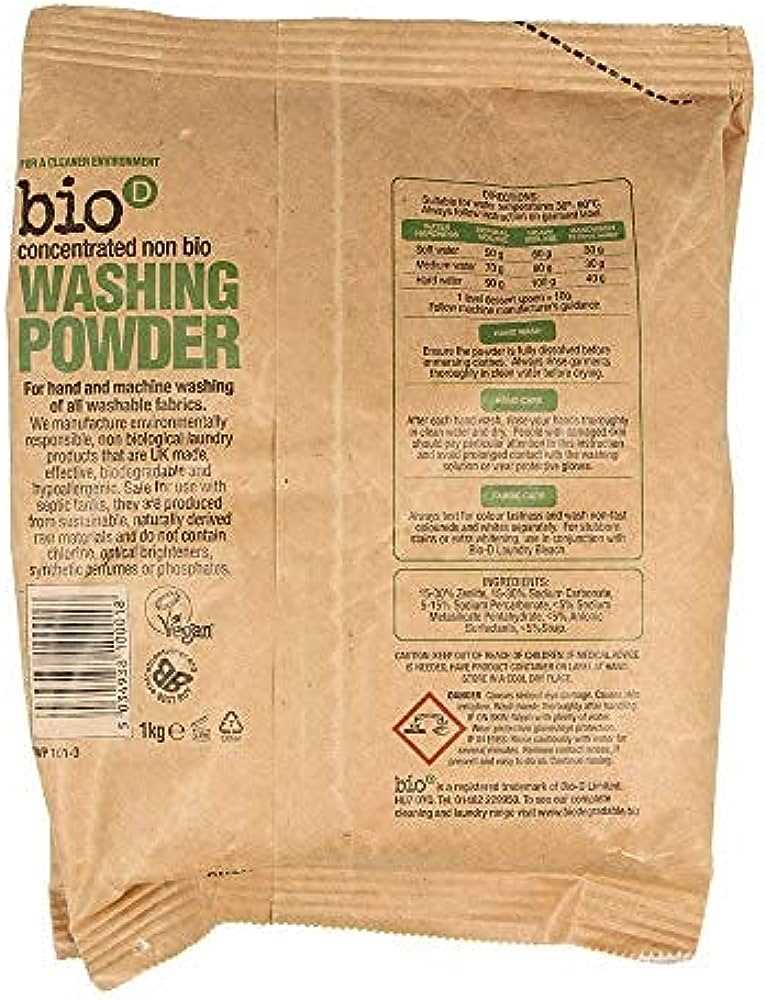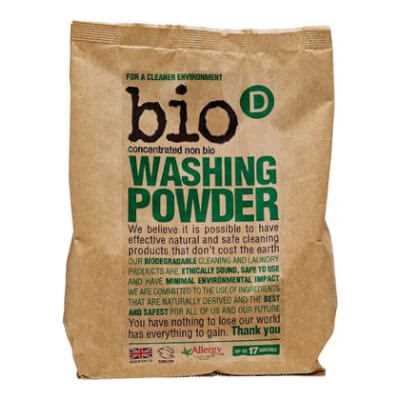


Biological washing powder is a popular choice for many households when it comes to getting their laundry clean and fresh. But have you ever wondered what exactly is in that powder? In this article, we will explore the ingredients found in biological washing powder and their role in the cleaning process.
One of the key ingredients in biological washing powder is enzymes. These natural proteins act as catalysts, speeding up chemical reactions in the washing process. Enzymes break down stains and dirt on a molecular level, making it easier to remove them from fabrics. Without enzymes, it would be much more challenging to achieve the same level of cleanliness.
In addition to enzymes, biological washing powder also contains surfactants. Surfactants are compounds that reduce the surface tension between water and dirt or stains, helping to loosen and lift them away from the fabric. This allows the enzymes and other cleaning agents to work more effectively.
What Does Biological Washing Powder Contain?

Biological washing powder, also known as bio detergent or bio washing powder, is a type of laundry detergent that contains enzymes. These enzymes help to break down and remove stubborn stains and odors from clothing.
The main ingredients found in biological washing powder include:
- Enzymes – Protease, amylase, and lipase are the enzymes commonly used in biological washing powder. These enzymes are proteins that act as catalysts to speed up the chemical reactions involved in the breakdown of stains and dirt.
- Surfactants – Surfactants, or surface-active agents, are responsible for removing dirt and stains from fabrics by reducing the surface tension between water and the fabric, allowing water to penetrate and lift the dirt particles.
- Builders – Builders, such as sodium carbonate and sodium tripolyphosphate, help to soften hard water and enhance the effectiveness of the detergent.
- Optical brighteners – Optical brighteners are chemicals that absorb ultraviolet light and emit visible blue light, making fabrics appear brighter and whiter. They do not actually remove stains, but rather enhance the appearance of cleanliness.
- Fragrances – Fragrances are added to give the laundry a pleasant smell after washing.
It is important to note that biological washing powder should not be used on certain types of fabric, such as silk, wool, or delicate fabrics, as the enzymes can cause damage. It is recommended to check the care labels on clothing and follow the manufacturer’s instructions for best results.
Understanding Biological Washing Powder

Biological washing powder, also known as bio detergent, is a type of laundry detergent that contains enzymes. These enzymes are naturally occurring substances that help to break down dirt and stains on clothing. This can be particularly useful for removing tough stains such as blood, grass, and food.
Enzymes are proteins that act as catalysts, speeding up chemical reactions. In the case of biological washing powder, the enzymes target specific types of stains and help to break them down into smaller molecules, making it easier for the detergent to remove them from the fabric.
Some examples of enzymes commonly found in biological washing powder include proteases, lipases, and amylases. Proteases break down proteins, lipases break down fats and oils, and amylases break down starches and carbohydrates. By using a combination of these enzymes, biological washing powder can effectively remove a wide range of stains.
In addition to enzymes, biological washing powder also contains surfactants. Surfactants are chemicals that help to reduce the surface tension of water, allowing it to penetrate the fabric more easily. This helps to loosen dirt and stains, making them easier to remove during the washing process.
It is important to note that biological washing powder is not suitable for all types of fabrics. Some delicate fabrics, such as silk and wool, may be damaged by the enzymes. In these cases, a non-biological detergent should be used instead.
- Enzymes help to break down dirt and stains on clothing.
- Common enzymes found in biological washing powder include proteases, lipases, and amylases.
- Surfactants help to reduce the surface tension of water, making it easier to remove dirt and stains.
- Biological washing powder is not suitable for all types of fabrics, such as silk and wool.
Key Ingredients in Biological Washing Powder

Biological washing powder contains a number of key ingredients that help to tackle stains, remove dirt, and ensure effective cleaning of clothing and other fabrics. These ingredients work together to break down and remove a wide range of stains, including those caused by protein-based substances like blood, sweat, or grass.
Enzymes
One of the key components of biological washing powder is a group of enzymes known as proteases. These enzymes are capable of breaking down proteins into smaller molecules, making it easier for them to be removed from fabrics. Proteases are particularly effective at removing stains caused by blood, grass, and other protein-based substances.
Surfactants
Surfactants, or surface-active agents, are another important ingredient in biological washing powder. These chemicals help to reduce the surface tension of water, allowing it to penetrate deep into the fabric and lift away dirt and stains. Surfactants also help to keep dirt and stains suspended in the water, preventing them from redepositing onto the fabric.
Optical Brighteners
Many biological washing powders also contain optical brighteners. These chemicals work by absorbing ultraviolet light from the environment and reflecting back blue light, which helps to make fabrics appear brighter and whiter. Optical brighteners do not actually remove stains but can give the illusion of cleaner and brighter clothes.
Chelating Agents
Chelating agents are used in some biological washing powders to help remove mineral and metal ions from the water. These ions can interfere with the cleaning process and cause fabrics to appear dull and discolored. By binding to these ions, chelating agents prevent them from interfering with the cleaning action of the detergent.
Fragrance
Many biological washing powders also contain fragrance to give clothes a pleasant scent after washing. The fragrance is typically a combination of synthetic or natural compounds that help to mask any unpleasant odors and leave behind a fresh and clean scent.
Other Ingredients
In addition to these key ingredients, biological washing powders may also contain a variety of other ingredients, such as bleaching agents, fabric softeners, and anti-foaming agents. These additional ingredients can enhance the cleaning performance and overall user experience of the washing powder.
FAQs about Biological Washing Powder
-
What is biological washing powder?
Biological washing powder is a type of laundry detergent that contains enzymes derived from microorganisms. These enzymes are capable of breaking down and removing stubborn stains such as blood, sweat, grass, and food.
-
How does biological washing powder work?
The enzymes present in biological washing powder target specific types of stains. They break down complex molecules found in stains into smaller, soluble components, making it easier for them to be washed away during the cleaning process. This is why biological washing powder is particularly effective at removing tough stains.
-
Can biological washing powder cause allergies?
Some people may be allergic or sensitive to the enzymes present in biological washing powder. These enzymes can cause skin irritation, redness, itching, or rashes in individuals with allergies. If you have a known allergy or sensitivity, it is recommended to choose a non-biological washing powder.
-
Is biological washing powder safe for the environment?
Biological washing powder can have negative effects on the environment. The enzymes present in the detergent can be harmful to aquatic life if they enter water systems. Additionally, the production and disposal of biological washing powder may contribute to pollution and excessive use of natural resources. It is advisable to use environmentally-friendly alternatives when possible.
-
Can biological washing powder be used for all types of fabric?
Biological washing powder is generally safe to use on most types of fabric. However, it is important to read and follow the instructions on the product packaging to ensure compatibility with specific fabrics. Some delicate or sensitive fabrics may require a gentler detergent.
-
Can I use biological washing powder for hand-washing clothes?
Biological washing powder can be used for hand-washing clothes. However, it is important to dilute the detergent in water before using it. It is recommended to follow the instructions provided by the manufacturer and to rinse the clothes thoroughly after washing.
Trending NowAriel Platinum PODS® Washing Liquid 120 WashesExtra stain removal for dried-in challengesThese convenient capsules tackle even the toughest stains, including those set for seven days. Enjoy brilliantly clean laundry with ease and value in every wash. -
How much biological washing powder should I use per load of laundry?
The recommended amount of biological washing powder to use per load of laundry may vary depending on the brand and the level of soiling. It is generally advised to follow the instructions on the packaging for the most effective and efficient results.
Benefits of Using Biological Washing Powder
Biological washing powder offers several benefits over regular washing powder, making it a popular choice for many households. Here are some of the key advantages:
- Effective stain removal: Biological washing powder contains enzymes, which are highly effective at breaking down tough stains and removing dirt from fabrics. These enzymes target specific types of stains, such as protein-based stains (e.g. blood, sweat, food), grease stains, and starch-based stains (e.g. gravy, pasta sauce).
- Powerful cleaning: The enzymes in biological washing powder help to break down dirt and grime more effectively than regular washing powder. This means that even heavily soiled clothes can be thoroughly cleaned and restored to their original condition.
- Lower water temperature: Biological washing powder can be used at lower water temperatures, resulting in energy savings during the washing process. This is because the enzymes in the powder are more effective at lower temperatures, reducing the need for hot water.
- Fresher smelling clothes: Biological washing powder often contains fragrance ingredients, which can leave your clothes smelling fresh and clean after each wash. The scent can also help to mask any lingering odours on clothes, such as sweat or smoke.
- Versatility: Biological washing powder can be used on a wide range of fabrics and clothing types, from delicate garments to heavy-duty fabrics. This versatility makes it a convenient choice for households with diverse laundry needs.
In summary, the use of biological washing powder can result in more effective stain removal, powerful cleaning, lower water temperature usage, fresher smelling clothes, and increased versatility in the laundry process. These benefits make it a popular choice for many households seeking a reliable and efficient laundry solution.
How to Use Biological Washing Powder Effectively
Using biological washing powder properly can help ensure that your clothes come out clean and fresh every time. Here are some tips to help you use biological washing powder effectively:
- Read the instructions: Before using any washing powder, it is important to read and understand the instructions on the packaging. This will give you information on the correct dosage and the best way to use the product.
- Sort your laundry: Sort your laundry into different piles based on the type of fabric, color, and level of dirtiness. This will ensure that you wash similar items together and can use the appropriate washing cycle.
- Pre-treat stains: If you have any stubborn stains on your clothes, it is a good idea to pre-treat them before washing. Apply a small amount of the biological washing powder directly to the stain, rub it gently, and leave it to soak for a few minutes before washing as usual.
- Use the correct dosage: Using too little or too much biological washing powder can affect the cleaning power and efficiency of the product. Follow the dosing instructions on the packaging to ensure you use the correct amount for your load size.
- Choose the right washing cycle: Different fabrics and levels of dirtiness require different washing cycles. Select the appropriate cycle on your washing machine to achieve the best results. Using a higher temperature can help remove tough stains, but always check the care label on your clothes to make sure they can handle it.
- Measure water hardness: Water hardness can affect the performance of biological washing powder. If you live in an area with hard water, it may be necessary to use a larger dose to compensate for the mineral content in the water.
- Follow safety precautions: Always handle biological washing powder with care. Keep it out of reach of children, avoid contact with eyes and skin, and use protective gloves if necessary.
- Store properly: Store your biological washing powder in a cool, dry place to maintain its effectiveness. Keep it away from moisture and direct sunlight to prevent clumping or deterioration.
By following these tips and using your biological washing powder correctly, you can ensure that your clothes are cleaned effectively and smell fresh.
FAQ
What is biological washing powder?
Biological washing powder is a type of detergent that contains enzymes derived from bacteria or fungi. These enzymes help break down and remove stains and dirt from clothing.
How does biological washing powder work?
Biological washing powder works by using enzymes to break down and remove stains from clothing. These enzymes are proteins that act as catalysts, speeding up chemical reactions that break down the stains into smaller, more soluble molecules that can be washed away.
What are the advantages of using biological washing powder?
Some advantages of using biological washing powder include its ability to effectively remove tough stains, its ability to work at lower temperatures, and its ability to break down organic matter such as sweat and body oils. It is also generally more effective than non-biological washing powders.
Are there any drawbacks to using biological washing powder?
One drawback of using biological washing powder is that it may cause skin irritation or allergic reactions in some individuals. Additionally, the enzymes in biological washing powder may be less effective in hard water, requiring the use of additional water softeners. It may also be more expensive than non-biological washing powders.
Can biological washing powder be harmful to the environment?
Biological washing powder can have some negative effects on the environment. The enzymes in the detergent can contribute to eutrophication, which is the excessive growth of algae in water bodies, leading to oxygen depletion and harm to aquatic life. Additionally, the packaging materials used for the washing powder can contribute to waste and pollution.












